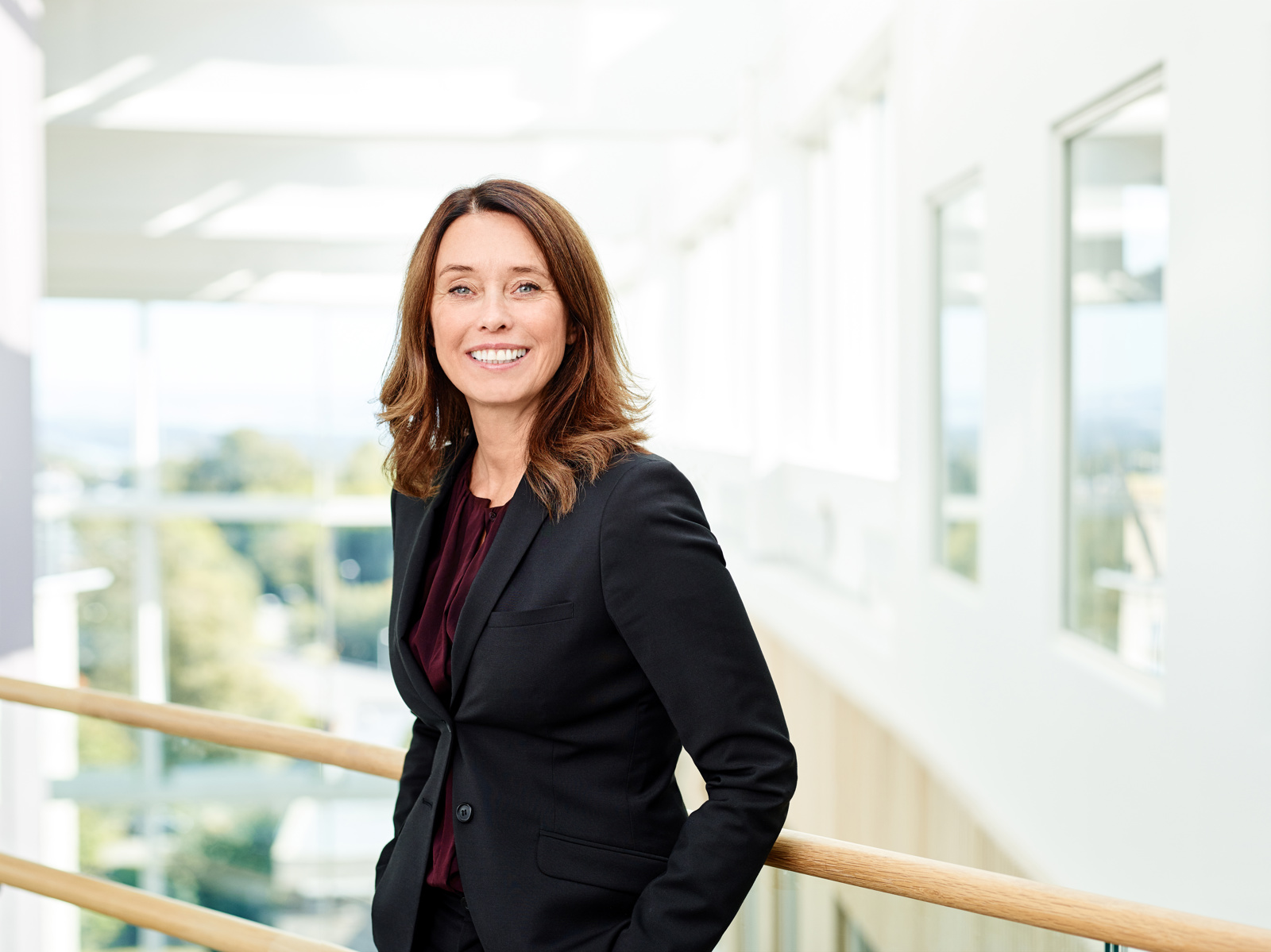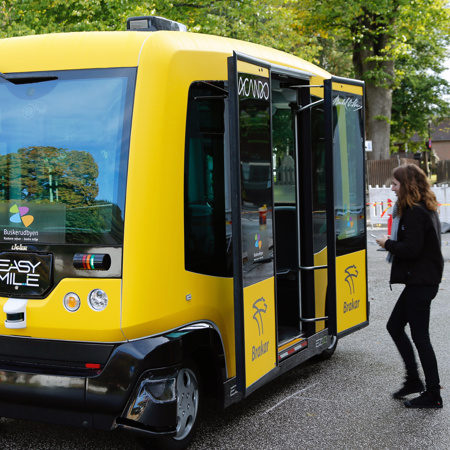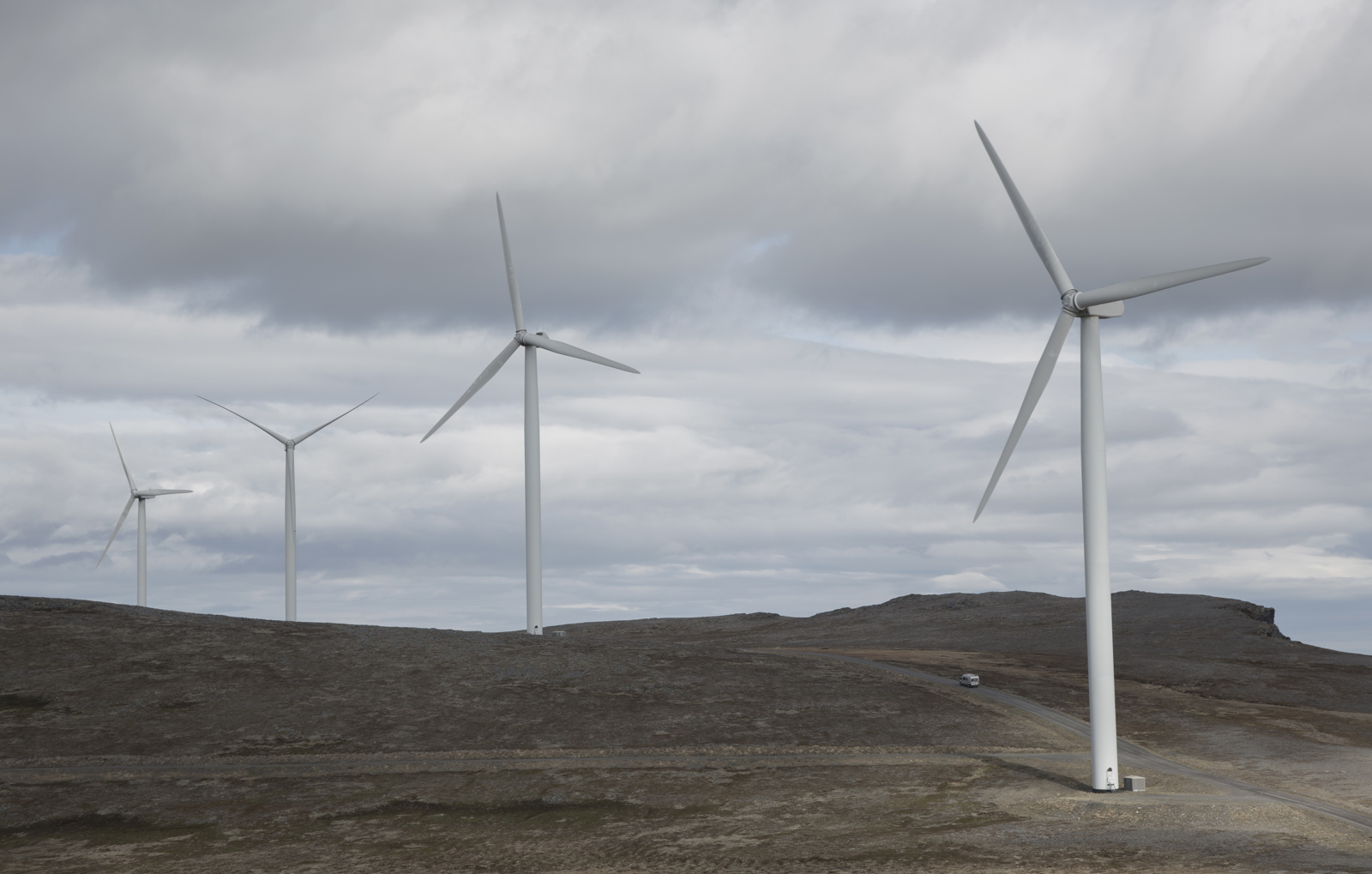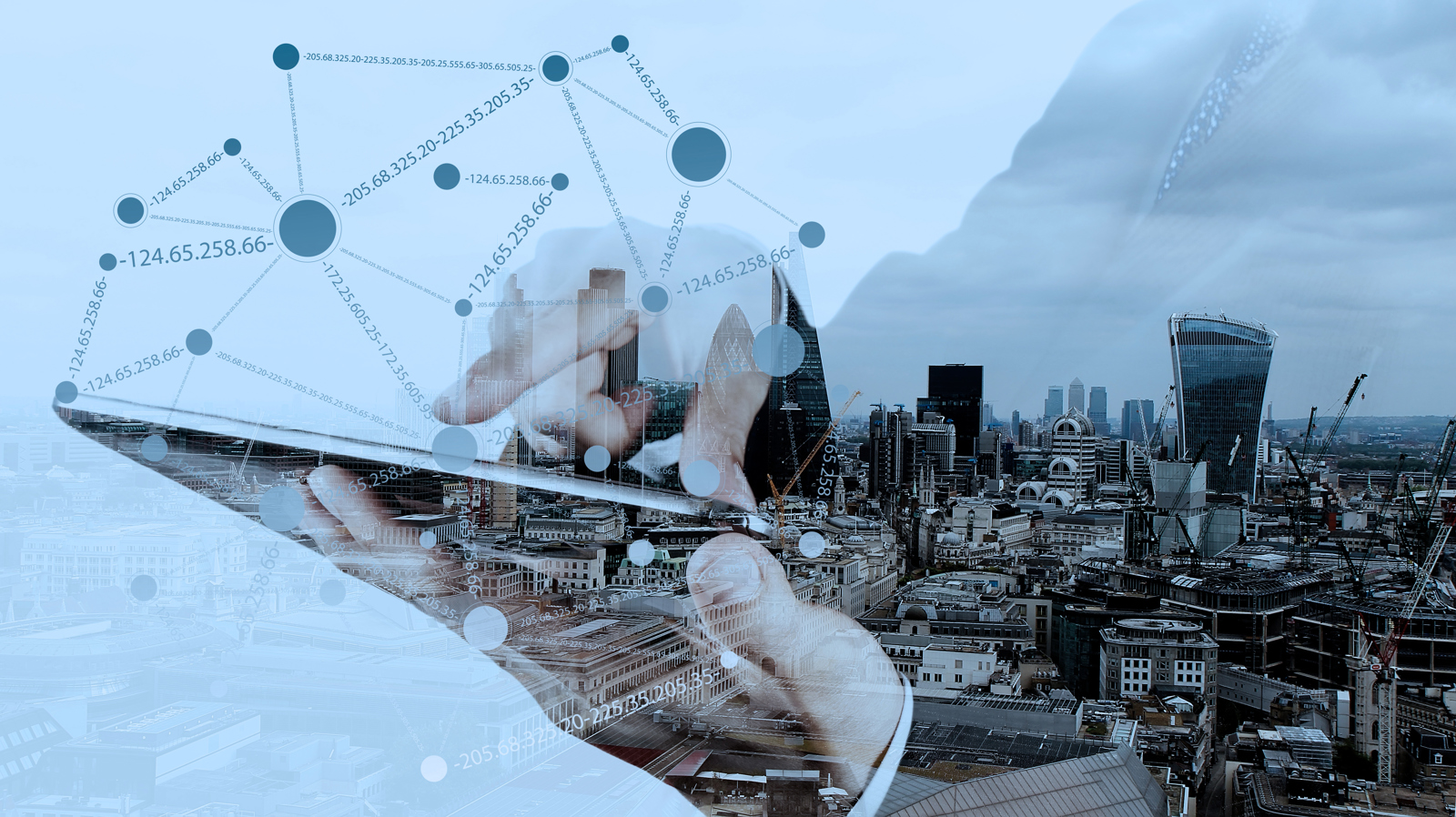
Will we be allowed steer our own cars on the roads in 25 years’ time? “Not necessarily,” replies Hege Skryseth, who is heading KONGSBERG’s digitalisation drive.
-
Text:OVE RONNY HARALDSEN
Photo:EINAR ASLAKSEN / OVE RONNY HARALDSEN
-
Ove Ronny HaraldsenGroup Communication Manager
K-Magazine has just challenged Hege Skryseth, President of Kongsberg Digital (KDI) with the following question:
“What will the world look like in a quarter of a century?”
Skryseth becomes animated, leans forward and takes a deep breath.
“The next 25 years is an exciting period, during which many things may change. I believe that by the end of it, we might not be allowed to drive cars. Driverless cars are already out on the roads. When we look at accident statistics around the world, it’s clear that transport safety is not good enough. Driverless cars, buses and other types of driverless vehicles will keep to the speed limits, avoid collisions and make it much less likely that anyone will be run over. To realise the vision of eliminating traffic deaths entirely, we will have to reduce the human factor to a minimum.
“I also think that there will be a great deal of change in how we share these driverless vehicles. At the moment, our private cars are idle for 20 hours a day. Can you imagine what they could contribute to transport capacity if they were to perform driverless transport assignments while you and I were at work? If a car can get from A to B without a driver, in principle this means that you could order it to be where you want it, when you want it. In 25 years, we could be subscribers to driverless car fleets.
“So, I’ve mentioned transport. The other big challenge will be in the way we sort the information around us. I believe that we are going to be more knowledgeable, thanks to what we call cognitive assistants. These are assistants which gather large volumes of information on our behalf, select what is most important, and give us short, easy-to-process summaries. This could be information regarding your health, your workplace (naturally), your network of contacts or your household. Basically, the cognitive assistants will allow the flow of our lives to be quite different to how it is now”.



“You have been in demand as a speaker since Kongsberg Digital was announced in February this year, and you meet a lot of different people. How do you describe Kongsberg Digital to someone who has never heard of either Kongsberg or KDI before?”
“I describe KDI as an industrial digitiser in the Industrial Internet of Things, Big Data and Artificial Intelligence. Our focus is on being able to assist our clients and partners with solutions that will increase their efficiency, cut costs and create new value. We have noticed that many of our clients and partners are starting their own digital strategy projects, in which they are looking at how to make daily work processes more efficient through automation and autonomous options. They are looking at how they can use advanced analyses and smart data to optimise their activities, and not least at how to utilise machine learning technology”.
“Can you give us some examples?”
“Wind power is a great example. KDI’s role in this field is to create digital twins of wind turbines. Our solution enables us to optimise how each turbine is used, and predict maintenance needs. Historically, maintenance is performed on pre-set dates. Now it is only performed when it is required. Digitalisation means that production increases while costs go down. A ‘wind-win’ situation, to twist a popular phrase”.

“Kongsberg Digital is made up of technologies that were previously held by the group’s oil and gas companies and Kongsberg Maritime. Which direction will KDI take in technology development?”
“There are three main areas on which we are focusing. The ‘Internet of Things’, ‘Smart Data’ and ‘Artificial Intelligence/Machine Learning’. The first is about how all of the electrical devices with which we surround ourselves will soon begin to communicate. For example, your fridge will start to talk to the shopping list you have on your mobile phone. Smart Data is about filtering, sorting and presenting information. In our case, Artificial Intelligence or Machine Learning could mean components in machines becoming more intelligent and thereby reducing wear, and so on”.
“But expectations of ‘the next big thing’ don’t always turn into reality — some new technology always appears on the scene and demolishes what we thought would be the future”.
“One of the characteristics of the digital revolution is that things move extremely fast. As an industrial corporation, we must be very aware of that. KONGSBERG is made up of four business areas — each with its own rhythm. Our rhythm is significantly faster than those of the others. We have to be able to adapt to this rhythm if we are going to stay in front. That is probably the biggest challenge facing KDI right now”.
“How would you say KDI’s markets are looking at the moment?”
“In many ways, our markets are in an early phase in terms of digitalisation. I am seeing high levels of interest from a number of leading companies in the oil, gas and maritime fields. Many companies are now setting up their own digital units within their companies. Quite a few have worked out what they can gain from digitisation and automating processes.

“We are also in an early phase in the field of renewable energy. We have some extremely strong Norwegian flagships in this area. Statoil has indicated their early ambitions for renewable energy. Statkraft has come a long way with wind power. Kongsberg Digital signed agreements with both of these companies in the early summer, and we will be involved in their development work in the field of renewable energy.
“In terms of maritime activities, we are working with Kongsberg Maritime to offer good quality services and products to the industry, based on the new technology options”.
“The oil and gas industry is expected to see a further decline, while there will be growth in renewable energy. How important is it for KDI to be responsible for the focus on renewable energy?”
“KONGSBERG is now able to offer a complete energy initiative via Kongsberg Digital. This means that we will be able to meet many of our clients’ needs. One of the characteristics of renewable energy is that it often tends to be digital right from the start. We are seeing a number of trends in energy supply in which our technology could play a significant role. New battery technology will make it possible for us to store renewable energy for much longer than we can at the moment. Solar parks will be able to provide the grid with stable power. The same also applies to wind power. Households will be able to store energy from their own photovoltaic cells. And not only for their own consumption. We only need to look at Germany, where 1.5 million households have photovoltaic panels and actually sell electricity to the grid”.
"There has been a lot of talk about digitalisation. Now it’s up to us to demonstrate how digitalisation can make a difference."
“You are heading a completely new business area in KONGSBERG. How are you finding the pressure resulting from the expectation associated with a position like that?”
“You could say that it’s very exciting. It’s not every day that you get the chance to be a ‘founder’ in a company that is 202 years old. Kongsberg Digital is made up of several well-established business areas which we are now going to focus on transforming for the digital age. Since we started up, a large part of our focus has been on how to demonstrate in real terms what digitalisation actually means to the rest of the company and the wider world. This is what I have told all my staff: ‘So, there has been a lot of talk about digitalisation. Internally, externally and in a lot of different fora. What is important for us now is to come up with some specific examples of what this really can do’”.
“Kongsberg Digital has been operational now since 1 July 2016, and as we mentioned before, you have been working on getting it established since the announcement in February. Have you had to make any tough decisions along the way?”
“I would say that there have been some important decisions to make along the way — relating to fields like technology and architecture. We have worked very hard to get the team to come together. We are based in 15 different locations, and we didn’t know each other all that well to start with. Getting everyone on the same page with regard to our message, direction and vision has been an important task over the last few months”.
“How would you describe yourself in terms of your leadership type and style?”
“I am probably quite a visionary leader in relation to the enormous potential facing us. My focus is on assembling strong teams, getting them to work well together, getting the best out of people and finding the chemistry within the teams. I believe in leading teams towards clear targets, and trusting people as much as possible. This is a philosophy that, in my experience, reaps benefits in terms of the energy to be found in people”.
FACTS: KONGSBERG DIGITAL
Kongsberg Digital is a provider of next generation software and digital solutions to customers within maritime, oil & gas and renewables & utilities. The company consists of more than 500 software experts with leading competence within internet of things, smart data, artificial intelligence, and automation and autonomous operations. In addition Kongsberg Digital is the group wide center of digital expertise for KONGSBERG.
OIL & GAS
- Real-time data aggregation, visualisation, and advisory solutions for all phases of well construction
- Dynamic process and advanced transient multiphase flow simulation solutions for engineering studies, operator training, real-time production and flow assurance
- One Production Field- One Integrated Model
- Rig management solutions for overall control of daily rig operations and drilling vessel management
MARITIME SIMULATION
- Real-time simulator solutions supporting everything from mandatory STCW training to advanced integrated crew training for maritime, naval and offshore industries.
- The range of K-Sim training solutions enables efficient education of vital skills enhancing knowledge, safety and cost-efficiency in maritime operations.
- Advanced simulation of complex maritime operations supporting pre-mission planning, feasibility studies and research projects for decision support.
RENEWABLES & UTILITIES
- Utilizing the extensive experience of the group from automation, analytics and sensors for the renewables and utilities industry
- Open platform with full integration of sensors and systems providing smart data and decision support
- Smart data solutions for increased efficiency in operations through real-time performance monitoring, forecasting maintenance and optimizing production
DIGITAL PLATFORM
- Open platform with full integration of sensors and systems providing smart data and decision support
- K-IMS is the bridge between offshore marine systems and onshore business enterprises
- K-IMS is able to turn big data into valuable information for customers to act on 30+ applications within performance management, condition monitoring, fleet performance


